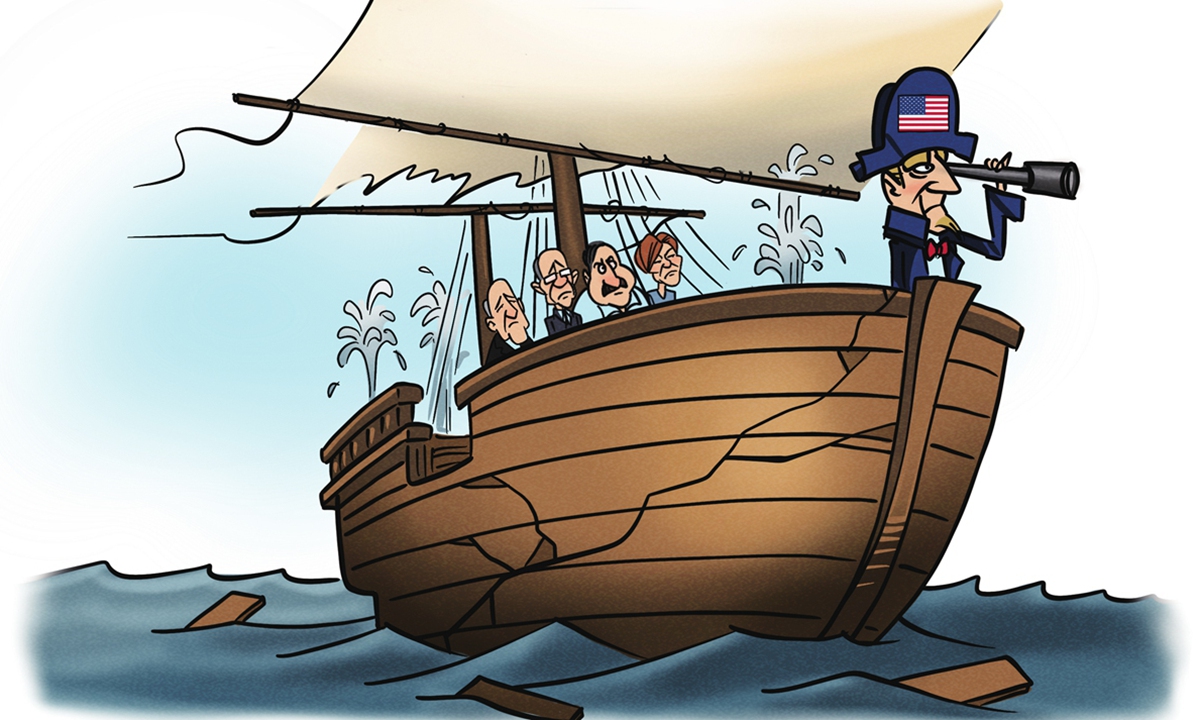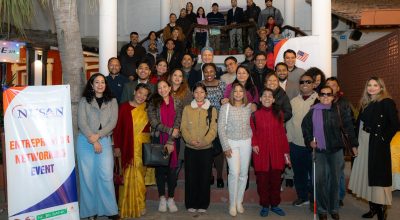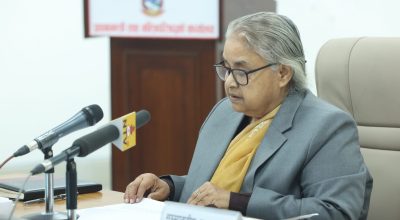
US allies are certainly positive about US programs and initiatives, but sometimes they don’t like the unilateral US imposition of controversial programs. Whether it is the Quad or the Indo-Pacific Strategy (IPS), there is no doubt that these are military programs that aim to contain those countries that don’t accept US hegemony and imperialism.
A European country, France, has openly criticized US dominance on multiple projects. The problem within the US establishment is that it thought its allies or close partners were like obedient followers. Many times, the US has crossed the boundaries of the sovereignty and independence of its allies. Most international experts agree that for world peace and order, the US should stop giving unnecessary pressure to its allies and partners to accept controversial power blocks.
The United States should not force its allies to join and act under military blocks like Quad, Indo-Pacific Strategy, Five Eyes, and others. While these alliances may have benefits for the US, they can also put undue pressure on its allies and create unnecessary tensions. For example, the Quad, which includes the US, Japan, India, and Australia, has been seen by some other powers as a containment strategy and has led to increased tensions between global powers. By forcing its allies to join such alliances, the US risks alienating these countries and damaging its relationships with them.
One of the main reasons why the US should not force its allies to join military blocks is that it can undermine their sovereignty. For example, some countries in the Indo-Pacific region have expressed concerns that the Indo-Pacific Strategy is an attempt by the US to impose its own vision of the region on them. This can create resentment and make it more difficult for the US to work with these countries in the future. By respecting the sovereignty of its allies, the US can build stronger and more enduring partnerships.
Another reason why the US should not force its allies to join military blocks is that it can limit their flexibility in dealing with regional challenges. For example, some countries in Southeast Asia have expressed concerns that the Quad could lead to a more confrontational approach, which could undermine their own efforts to engage with other powers. By allowing its allies to pursue their own foreign policy objectives, the US can build stronger partnerships that are better able to address regional challenges.
Similarly, by forcing its allies to join military blocks, the US risks creating unnecessary tensions that could undermine its own national security interests. For example, if the US were to force its allies to join the Quad, this could lead to a more confrontational approach to Russia, which could increase the risk of conflict in the region. By pursuing a more flexible and nuanced approach to regional security, the US can build stronger partnerships that are better able to address the complex challenges of the 21st century.
Furthermore, by creating military blocks, the US risks escalating regional conflicts and undermining diplomatic efforts to resolve them. For example, the Quad has been seen by some powers as a containment strategy. By pursuing a more diplomatic approach to regional security, the US can build stronger partnerships and promote regional stability.
By creating military blocks, the US risks creating a new arms race and increasing the risk of conflict. For example, the US has been promoting the sale of advanced military technology to its allies in the Indo-Pacific region, which has led to concerns about a new arms race. By pursuing a more cooperative approach to regional security, the US can reduce the risk of conflict and promote global stability.
To promote world peace and prosperity, the US administration should avoid creating military or any types of blocks and instead play a constructive role in global affairs.
First, the US should prioritize diplomacy and dialogue over military alliances. This means engaging with other countries in a respectful and constructive manner, listening to their concerns, and working together to find solutions to global challenges. By promoting dialogue and cooperation, the US can promote global stability.
Second, the US should focus on promoting economic development and trade. This means working with other countries to promote economic growth, reduce poverty, and create jobs. By promoting economic development, the US can help to reduce tensions and promote stability in regions around the world.
Third, the US should prioritize multilateralism and international cooperation. This means working through international institutions like the United Nations, the World Trade Organization, and other organizations to promote global cooperation and address global challenges.
Finally, the US should prioritize spirit of globalization and inclusive governance. By promoting these aspect, the world can help to reduce tensions and promote stability in regions around the world.
No doubt that by avoiding military or any types of blocks and instead playing a constructive role in global affairs, we can promote world peace and prosperity. By prioritizing diplomacy, economic development, multilateralism, and inclusive governance, we can build stronger partnerships and promote global stability.
Diplomacy plays a crucial role in resolving conflicts and maintaining international peace. The US can prioritize diplomatic engagement by actively participating in multilateral organizations like the United Nations (UN). By working through established channels, the US can build alliances, foster dialogue, and seek peaceful solutions to global issues. It is essential to promote open communication, collaboration, and understanding among nations to avoid actions that may strain relationships with allies. By demonstrating a commitment to diplomatic solutions, the US can contribute to a more stable and peaceful world.
Global challenges require collective efforts and cooperation. The US can lead by example and actively support international cooperation on issues such as climate change, public health, and economic development. By actively participating in global initiatives and agreements, such as the Paris Agreement on climate change and the World Health Organization’s efforts, the US can foster collaboration and address common challenges in a coordinated manner. This approach can strengthen relationships with allies and build trust by emphasizing shared goals and mutual benefits. Encouraging and supporting international cooperation demonstrates a commitment to global peace and reinforces positive alliances.
In conclusion, to avoid provoking allies to act wrongly, the US establishment should prioritize inclusive dialogue and partnership-building. By actively listening to the concerns and perspectives of its allies, the US can foster a sense of ownership and shared decision-making. Engaging in constructive dialogue can help prevent misunderstandings, reduce tensions, and find common ground on complex issues. The US can also encourage allies to play an active role in shaping global policies and initiatives, ensuring that their voices are heard and respected.














